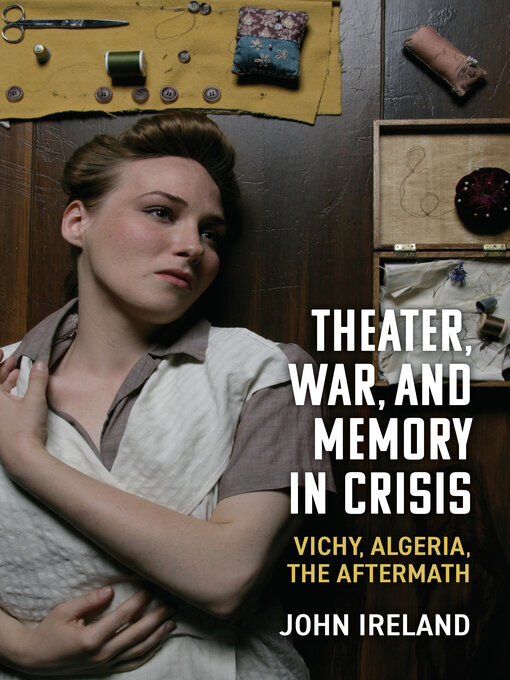-
Creators
-
Series
-
Publisher
-
Release date
March 11, 2025 -
Formats
-
Kindle Book
-
OverDrive Read
- ISBN: 9780472904891
-
Open EPUB ebook
- ISBN: 9780472904891
- File size: 1199 KB
-
-
Languages
- English
-
Reviews
-
Library Journal
February 1, 2025
Ireland (French and Francophone studies, Univ. of Illinois, Chicago) links commentators on two notably repressive periods of mid-20th-century French history--the civil wars during the Vichy government (1940-44) and the Algerian War of Independence (1954-62). He asserts that theater, a continuation of the oral tradition of ancient Greece, with a lifespan older than that of the written word, can better explain shifting, contested memories. Drawing upon the contributions of anthropology and sociology, Ireland addresses concepts such as memory, whereby people analyze experiences after the actual events, thereby producing more realistic evaluations with the benefit of hindsight. He's less of a fan of institutional theater bound to scripts (a form of capture), preferring interactive, constant adaptational storytelling where there is no rigid separation between actors and audience. There is an entire chapter (and more) on Sartre, the first dramatist to address the cataclysms of both the Vichy period and the Algerian revolution, and explications of the work of Genet, Bernard-Marie Koltes, Liliane Atlan, Armand Gatti, and indigenous Algerian artists such as Kateb Yacine and Noureddine Aba. VERDICT Best for serious students of theater or colonialism and violence studies, but may be challenging for general audiences.--Frederick J. Augustyn Jr.
Copyright 2025 Library Journal, LLC Used with permission.
-
subjects
Languages
- English
Loading
Why is availability limited?
×Availability can change throughout the month based on the library's budget. You can still place a hold on the title, and your hold will be automatically filled as soon as the title is available again.
The Kindle Book format for this title is not supported on:
×- - Kindle 1
- - Kindle 2
- - Kindle DX
- - Kindle Keyboard
- - Kindle 4
- - Kindle Touch
- - Kindle 5
- - Kindle Paperwhite
- - Kindle 7
- - Kindle Voyage
Read-along ebook
×The OverDrive Read format of this ebook has professional narration that plays while you read in your browser. Learn more here.

